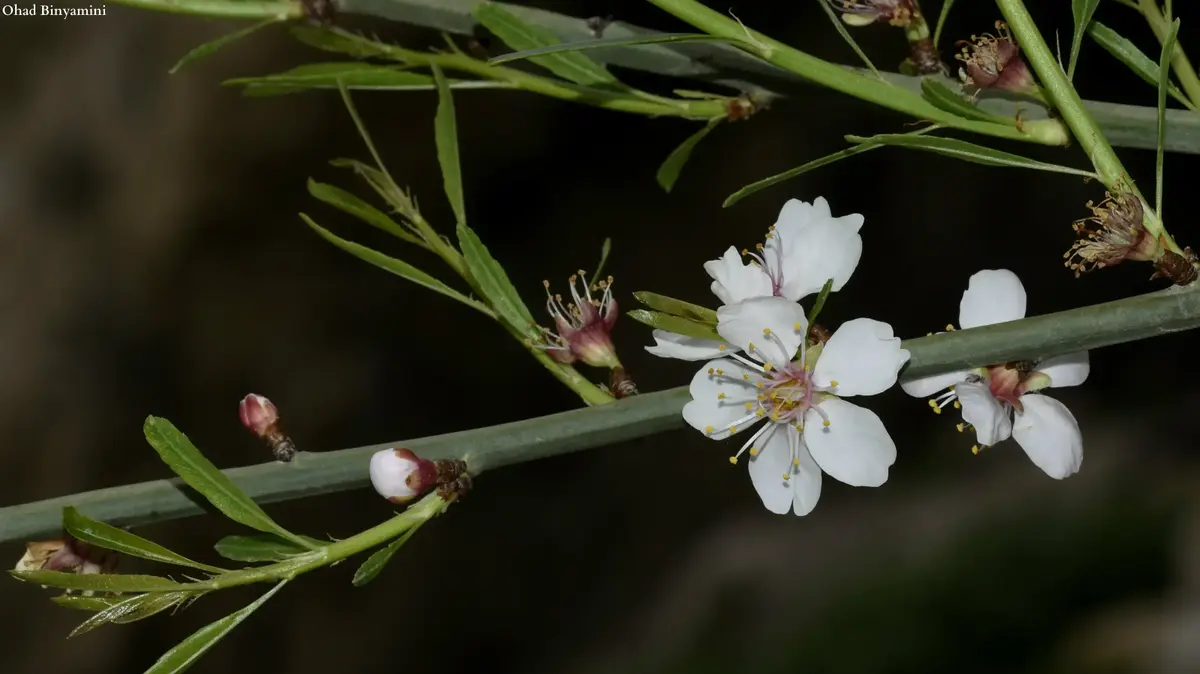Francisco Morales poses at the Zamoranos factory where almonds are treated.Chencho Martínez
For Francisco Morales, 72, there are two anecdotes that he loves to tell.
The first, that it was born in a pile of almonds.
It is almost literal.
As a child, when his family worked, the girl who took care of him surrounded him with a lot of almonds to keep an eye on him more easily.
The second is that his dream was always to be a bullfighter.
"My idol was Manolete," he remembers.
He barely stepped on the albero;
only when young, in some capeas.
But this Cordovan man has left the big door in the business world: his family business, Almendras Francisco Morales, has completed 111 years of life based on splitting almonds.
More information
Life and death of almond blossoms
Is a handful of almonds worth scratching your pocket?
In 2020 it moved a volume that exceeded 30 million kilos of this dried fruit, with which it had a turnover of 45 million euros. The figure fell just over 20% compared to 2019, when they reached 57 million, due to the health crisis. The businessman, who faces an uncertain 2021, has also been diversifying his activity towards oil, wine, nuts and other businesses to reach a global turnover of 170 million euros last year, 15% less than in 2019.
Morales likes to walk - calmly, his cell phone always close at hand - along the roads of Zamoranos, a small district of Priego de Córdoba that does not reach 400 inhabitants. There he employs fifty people in the almendrera. It has splitting plants in Villamalea (Albacete) and the north of Portugal, but the three main facilities of the company are deployed in this village, located in the geographical center of Andalusia and surrounded by olive trees to the northeast of the Sierras Subbéticas natural park. In cordoba.
The silence of the rural landscape contrasts with the stridency of the machinery that splits the almonds in a huge concrete warehouse.
The resulting powder permeates every corner of an iron labyrinth where the peel is separated from the fruit under the watchful eye of a few operators.
"Today only two people in a day do the same work that more than 100 did for two months in the middle of the last century," says Morales, who since taking over the family business in the 1970s has always promoted mechanization.
The secret of success?
"Work, work and work," says who still gets up at six in the morning to go down the stairs to the offices, located under his house.
20 varieties
In the same building are the second facilities of the company in the town, just a kilometer and a half from the previous ones. The almonds - of a score of varieties - travel there, already peeled, which go through a calibration process to separate them according to their size. Later, the hands of a team of women speed through a blanket of almonds to remove the imperfect ones, and finally they are stored in one-ton sacks, crammed by the hundreds in huge cold rooms. It is the usual sales format, but there are also boxes or vacuum bags of between 5 and 10 kilos. A small quantity is also sold without skin.
Around 40% of the total is exported, mainly to Germany, but also to countries such as Italy, France, China or the United States. "There are sales pecks in many countries," says the one who was elected businessman of the year in Córdoba in 1999. The rest of the production remains in Spain, destined mainly for the confectionery and nougat industry. "Alicante buys a lot," he stresses. Except in 2020, with sales affected by the absence of popular festivals, Easter or Christmas.
The Morales family has about 200 hectares of almond trees, whose production is insignificant for the volume of almonds that the company moves. Most of them are acquired in all corners of Andalusia and Extremadura, although some are imported from California. Morales travels with the same ease through San Francisco as through Zamoranos and knows half the world. "Now I'm tired of traveling," he explains. But not to work, despite having been on the chopping block for 60 years. "Why retire?" He asks. His three daughters —María del Rosario, Paqui and María José— are already part of the day-to-day running of the company and will direct the activity in the future. They will be the fourth generation. "This is our life and we don't know how to do anything else," Morales sentenced,that in the nineties diversified the business with an oil mill in the town and in 2013 presented Viñedos Pozanco, a winery in Almendralejo, which is joined by a walnut trading firm in Chile.
It was his grandfather José, at the beginning of the 20th century, who started the company. He was dedicated to buying beasts in Galicia and later selling them in Andalusia. In 1910 he added to the business the acquisition of local almonds, which a hundred women left by hand to later sell them shelled. His son inherited the company and later did the same Francisco Morales, who as a child accompanied the beasts that transported almonds. The first machines that the family acquired, made of wood now worn by the passage of millions of nuts, are on display today at the Zamoranos Almond Museum. It is the third leg of the almendrera facilities in the town where it was born and the way to celebrate its centenary back in 2010. It is also a regular destination for Imserso excursions,whose suspension due to the health crisis has left the space more silent than ever. The same stealth with which Francisco Morales, step by step, has created his empire.

/cloudfront-eu-central-1.images.arcpublishing.com/prisa/WX57D7IUINA2JAJNC7Y7V4UMW4.jpg)



/cloudfront-eu-central-1.images.arcpublishing.com/prisa/GE2HIPPGSREYXNPF3G7BWKT62U.JPG)
/cloudfront-eu-central-1.images.arcpublishing.com/prisa/SGKVBRGU7FC7PHC466NFXMSVTM.jpg)


